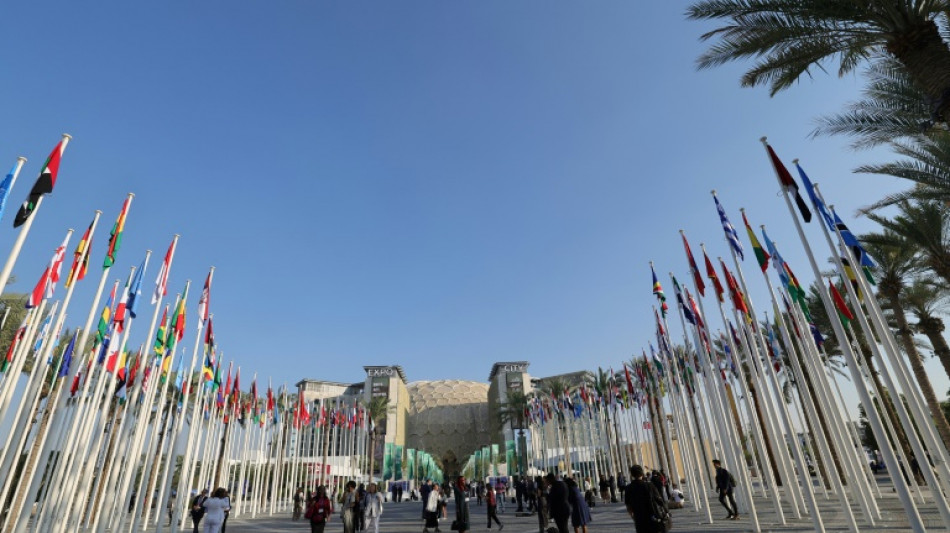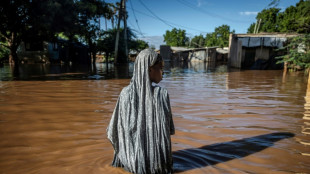

UN climate talks home in on fossil fuel deal
UN climate talks enter their endgame on Monday as negotiators seek to convince an increasingly isolated Saudi Arabia and other holdouts to give up their opposition to a historic phase-out of fossil fuels.
With 24 hours to go before the official end of COP28 in Dubai, a new draft deal was expected in the morning in the hope that the right language may have finally been found to achieve a consensus among nearly 200 countries.
The annual Conference of the Parties, or COP, has rarely finished on schedule in its 28-year history, but COP28 president Sultan Al Jaber has called on countries to wrap things up on time on Tuesday.
It would coincide with the anniversary of the 2015 Paris Agreement, which set the increasingly elusive target of limiting warming to 1.5 degrees Celsius from pre-industrial levels -- Jaber's "North Star".
Jaber, the head of the national oil company of the United Arab Emirates, has repeatedly promised to deliver a historic deal and urged countries to find a "consensus and common ground" on fossil fuel.
"Failure is not an option," he said on Sunday.
Saudi Arabia, the world's top oil exporter, has opposed any phase-out or phase-down of fossil fuels and told COP28 that its "perspectives and concerns" must be taken into account.
Iraq has also publicly rejected an exit from fossil fuels.
But veteran climate campaigners and negotiators say the world has never been so close to a deal on winding down oil, gas and coal.
The pressure is now on Jaber -- whose role as oil executive has caused angst among climate campaigners -- to make the final edits to a deal that would bring a consensus.
In a bid to find common ground, Jaber invited ministers on Sunday to lay out their positions during a "majlis" -- a traditional Gulf Arab meeting held in a circle.
"I hope that you won't let me down," he said at the end of the meeting.
- Several options -
Negotiators have failed to produce a new draft agreement since the last text was released on Friday.
The document includes four different paths out of fossil fuels, but it also has a fifth option: leaving the issue out of the final deal.
China, the world's biggest emitter, was also initially seen as hostile to a phase-out but has since been working to find a compromise.
Chinese climate envoy Xie Zhenhua recalled on Saturday that the United States and China issued a joint statement last month agreeing on the need to speed up the deployment of renewable energy in order to gradually substitute the use of oil, gas and coal.
Friday's draft deal includes similar language on the need to triple renewable energy capacity by 2030, to "displace fossil fuel-based energy".
Countries are waiting for a new draft deal before putting all their negotiating "chips" on the table, said a source close to the COP28 presidency.
Y.Wagener--LiLuX



